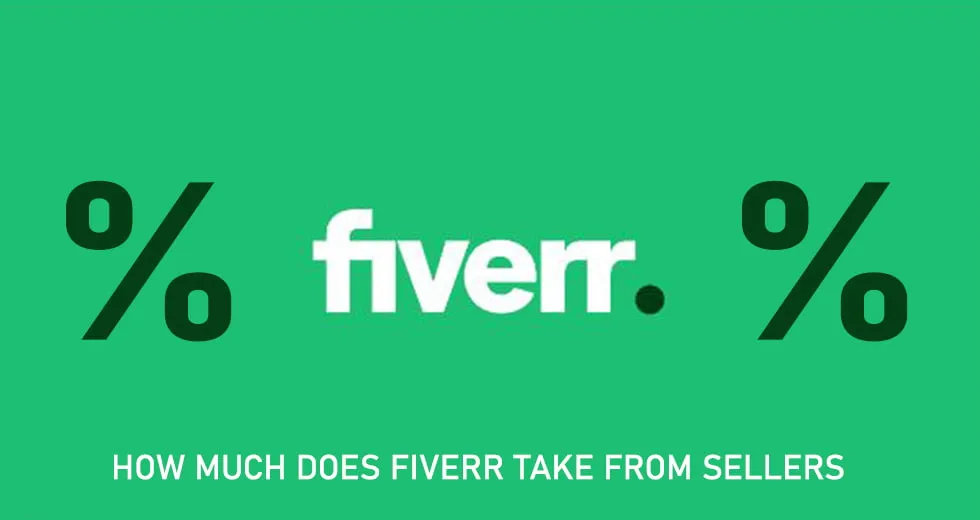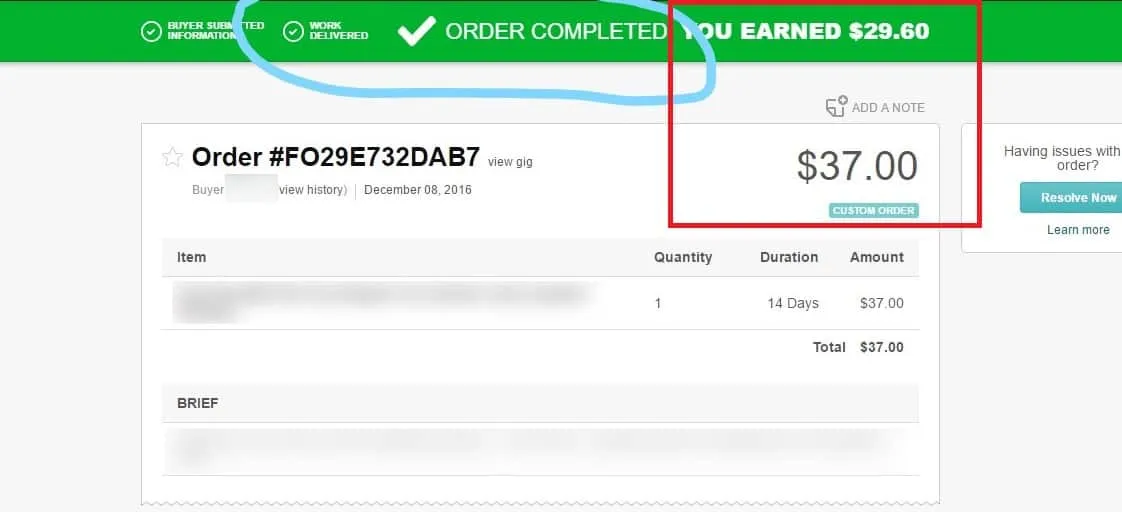When you start freelancing on platforms like Fiverr, one of the first questions that pop into your mind is, "How much of my hard-earned cash will I actually take home?" Understanding Fiverr's tax and fee structure is crucial for effective financial planning and ensuring you are maximizing your profits. In this blog post, we will break down the taxes and fees associated with Fiverr to give you a clearer picture of your potential earnings. Let’s dive in!
Understanding Fiverr's Fee Structure

Fiverr operates on a commission-based model. This means that for every gig you sell on their platform, they take a percentage as a service fee. Here’s a detailed look at how this works:
- Standard commission rate: Fiverr typically charges a flat commission of 20% on all transactions. This means if you sell a gig for $100, you’ll receive $80 after Fiverr takes its cut.
- Service fees: In addition to the commission, Fiverr may also charge service fees to buyers, which can further impact how your gig is perceived in pricing. However, these fees do not come out of your earnings as a seller.
- Special promotions: Occasionally, Fiverr runs promotions that might temporarily lower or alter the commission structure. Be sure to stay updated on any special offers to potentially maximize your profits.
Here’s a simple table to summarize the potential earnings based on different sale amounts:
| Sale Amount | Fiverr Fee (20%) | Your Earnings |
|---|---|---|
| $100 | $20 | $80 |
| $200 | $40 | $160 |
| $500 | $100 | $400 |
It’s essential to consider these deductions when setting your prices on Fiverr. Make sure to factor in the platform fee to ensure you’re still meeting your financial goals!
Also Read This: How Do I Get Credit for Referring on Fiverr?
3. Types of Taxes Applicable on Fiverr Earnings

When you're freelancing on platforms like Fiverr, understanding the types of taxes that might apply to your earnings is crucial. It not only helps you keep track of your finances but also prepares you for tax season. Here are the primary types of taxes you should be aware of:
- Income Tax: This is probably the most significant tax you'll encounter. Depending on your country's tax laws, you'll need to report any income you generate from Fiverr. This income is typically classified as self-employment income.
- Self-Employment Tax: In many jurisdictions, if you're operating as a freelancer, you're considered self-employed. This means you may be liable for self-employment taxes, which cover Social Security and Medicare. In the U.S., for example, the self-employment tax rate is around 15.3%.
- Sales Tax: Depending on the nature of your services and where you reside, you might need to collect sales tax from your clients. This is more common for tangible products, but some regions apply it to digital services as well.
- Local Taxes: Depending on your location, there may also be state or local taxes you need to adhere to. It's essential to check the specific regulations in your area.
Always remember to keep accurate records of your earnings and any expenses, as this will help you when it comes time to file your taxes. Consulting with a tax professional can also provide clarity on your specific obligations.
Also Read This: How to Edit My Gig on Fiverr
4. How Fiverr Calculates Fees and Taxes
Understanding how Fiverr calculates its fees and taxes can save you a lot of confusion and ensure you're pricing your services correctly. Here’s a breakdown of how Fiverr processes these calculations:
- Service Fee: Fiverr takes a 20% service fee from your total earnings for each order. This means if you charge $100 for a service, Fiverr deducts $20, and you receive $80. Simple, right?
- Payment Processing: Depending on the payment method you choose, there might be additional processing fees. For instance, if you opt for PayPal, you may incur fees for receiving payments.
- Tax Withholding: In some cases, Fiverr may be required to withhold taxes from your earnings, especially for U.S. freelancers. This can depend on your tax residency and whether you've provided tax documentation.
Moreover, Fiverr offers a feature to showcase pricing in a way that accounts for their fees, so you don't end up unintentionally underpricing your services. Always check your earnings reports on Fiverr for transparency about the deductions made so you can plan accordingly.
Also Read This: What is Impression in Fiverr?
5. Implications for Freelancers and Service Providers
When it comes to freelancing on platforms like Fiverr, understanding the tax implications is crucial for your financial health. Let’s break down what this really means for you as a freelancer or service provider.
First off, it's important to know that Fiverr takes a commission from your earnings. Typically, they charge a fee of 20% on the total amount you earn from each gig. This isn’t just a cut—it’s part of the transaction that you need to factor into your overall income.
Once you receive payments, you’re now responsible for reporting that income to tax authorities. Ignoring this responsibility can lead to penalties or audits, which no one wants!
Here’s how this can impact you:
- *Tax Bracket: Your Fiverr income can push you into a higher tax bracket, depending on your total earnings. This means you might be paying a larger percentage in taxes than you initially thought.
- Self-Employment Tax: As a freelancer, you’re considered self-employed. This means you’ll owe self-employment taxes—typically around 15.3%—on your net earnings from Fiverr, in addition to your regular income tax.
- Record-Keeping:* Clear tracking of your income and expenses is essential. Fiverr provides documentation, but it’s up to you to keep good records of your transactions and any related costs.
Ultimately, being aware of these implications helps you make smarter financial decisions and plan ahead for tax season. Remember, it’s not just about how much you earn; it’s also about what you keep!
Also Read This: How to Increase Your Gig Impression on Fiverr
6. Strategies to Manage Taxes on Fiverr Income
Managing your taxes as a Fiverr freelancer doesn’t have to be overwhelming. With some effective strategies, you can make it a whole lot easier to handle your tax responsibilities!
Let’s explore some actionable tips to help you manage your taxes effectively:
- Keep Detailed Records: Track all your earnings and expenses diligently. This includes not just your Fiverr income, but also any expenditures related to your freelancing work, like software subscriptions or office supplies. Use accounting software or spreadsheets to maintain clarity.
- Set Aside Money for Taxes: It’s a good idea to allocate a portion of your earnings for taxes. A common rule of thumb is to set aside about 25-30% of your income. This way, you won't be caught off guard when tax season rolls around.
- Consider a Separate Bank Account: Having a dedicated account for your Fiverr income can help you manage your finances better. It separates your business income from personal funds, making tracking easier.
- Consult a Tax Professional: If tax laws seem daunting, there’s no shame in seeking help! A tax professional can provide tailored advice based on your situation, ensuring you’re compliant and maximizing your deductions.
- Stay Informed: Keep abreast of changes in tax regulations that affect freelancers. Joining freelancing forums or subscribing to relevant newsletters can be beneficial.
By employing these strategies, you can take charge of your tax situation and free up your mind to focus on what you do best—creating and delivering fantastic services on Fiverr!
How Much Tax Does Fiverr Take?
Fiverr is a popular online marketplace that connects freelancers with clients looking for various services, from graphic design to writing and programming. While Fiverr provides a platform for many to earn money, it's essential to understand the implications of taxes on your earnings.
When you sell a service on Fiverr, the platform takes a percentage as a service fee, which can be considered a form of income tax. Here’s a breakdown of how Fiverr applies its fees:
| Service Price | Fiverr's Service Fee | Your Earnings |
|---|---|---|
| $5 | 20% ($1) | $4 |
| $10 | 20% ($2) | $8 |
| $100 | 20% ($20) | $80 |
The standard service fee for orders on Fiverr is typically 20%. However, for certain cases such as buyers' purchases of Gig Extras or Custom Offers, fees can vary slightly but generally fit within this range.
Moreover, depending on your location, there may be additional tax responsibilities. Freelancers must report their earnings from Fiverr to their respective tax authorities. You may also be responsible for paying self-employment taxes and potentially income tax based on your earnings.
In conclusion, Fiverr charges a standard service fee of 20%, which impacts your net earnings, and it is vital for freelancers to be aware of their additional tax obligations based on their income and local regulations.



